We all have an aerosol of WD40 in our garage. Sitting there year after year, never going off and never seeming to empty even though it is our go-to spray for anything.
Anything that isn’t moving smoothly, anything that squeaks, anything that is stuck or seized.
I’ve got many questions like “Can You Use WD40 to Clean a Gun?”, and that’s what we’re going to explore today!
Should we be forever reaching for the WD40 to be our fix-all?
Should there be facts, science, and other information to consider before deciding the best course of action is blasting the problem with a solvent?
Well, that is what we are going to uncover in this blog. Our focus is firearms and whether you should be using WD40 on your gun.
What Is WD40 Made Of?
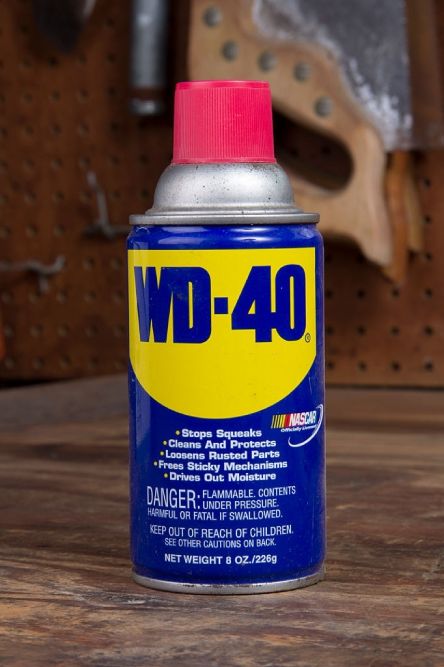
WD40 stands for water displacement, 40th Formula.
In a 2009 Wired article, they claimed that you could summarize the ingredients as “mostly a mix of baby oil, Vaseline, and the goop inside homemade lava lamps.”
The official contents are Decane, Nonane, Tetradecane, Dimethyl Naphthalene, Cyclohexane, and carbon dioxide.
This suggests all the required ingredients are readily available in household products for you to make your own WD40.
Though we don’t recommend it, If you do choose to dust off your chemistry set then please use the resulting formula on a stiff hinge and not a deadly weapon.
Why Did People Start to Use WD40 on Their Firearms?
People originally started to use WD40 on their guns simply down to a lack of choice.
There were not a lot of gun maintenance products on the market and none with an aerosol system.
So, when WD40 came out in 1961, gun enthusiasts had a product that could clean and maintain your gun whilst propelling the mixture into the smallest of holes and concealed nooks.
At first, this seemed like the perfect solution and, temporarily, it was.
Can You Use WD40 to Clean a Gun?
Yes, you can but you better don’t do it unless there is no better option.
We recommend that you use gun oil and gun cleaner together for proper gun maintenance and safety.
Why It Is a Bad Idea to Clean a Gun Using WD40?
-
Smell
WD40 has its own unique smell that will soon transfer to your gun and become a little overpowering with regular use.
The question is whether you like the smell of WD40 or not. Perhaps you have a taste for it like some do with petrol!
-
Cleaning becomes harder
At first, it will seem that WD40 is working well to clean your gun, but you must remember WD40 is primarily a solvent.
This means it will dissolve residue from your gun and then relocate it. So, over time you will simply accumulate obstructions in your gun whilst never cleaning it properly.
-
Lubrication and residual effects
WD40 is a fantastic lubricant and you will not find many arguments against this. But WD40 also leaves a residue that, over time, builds up.
Is it wise permitting obstacles to gather in the workings of a lethal weapon?
Guns should be treated with the utmost respect and therefore looked after accordingly.
-
Flammable substance
WD40 is flammable, and your gun is a tool that uses a primer to ignite the powder. You are holding a flammable up close to your face as you cause an ignition.
Would you hold a petrol-drenched cloth to your cheek as you light a cigarette?
Consider the potential consequences and remember, due to the availability of other products like gun oil, this is not a risk that needs undertaking.
-
Bore cleaning
The main intention behind bore cleaning is to remove all the copper and carbon fouling that has built up within the barrel.
There are many specialist products and easy-to-follow video tutorials online.
None of these suggest using WD40 for the task which makes sense since WD40 leaves residue and the objection of bore cleaning is to clear the inside of the barrel.
-
Collects dust and grit
Once WD40 has evaporated, a waxy residue will remain.
This not only can gum up any of the moving parts within a gun but also is just sticky enough to attract dust and grit.
These small parts are also the very parts you need to be working in harmony for safe discharge.
-
Evaporation
When WD40 is left open to the elements, all solvents in the mixture will evaporate.
This will leave a viscous oil that is too thick and gummy to leave your small metal parts soaking in and expect them to work safely when you return.
-
Rusting
For rust prevention, WD40 is a fantastic product.
The coating left behind after evaporation seals your object and protects it from the elements for up to two years.
When You Actually Can Use WD40 to Clean Your Gun
-
When disassembling your gun
There are of course exceptions to the rule and times when WD40 is perfectly acceptable for the job at hand when dealing with your gun.
One of these is to displace water when out on a hunt and your firearm has got soaked.
However, you must make sure to disassemble your gun as soon as you get home or to your hunting lodge and dry it thoroughly.
Then give it a thorough clean with quality gun cleaner and gun oil.
-
In an emergency
WD40, as previously stated, is a water displacer.
This means that one thing it is very suited to be assisting in restoring to working order any parts that are frozen, corroded, or seized.
However, should you really be using a firearm that has been allowed to get into a state that requires these repairs, perhaps it is safer to invest in a new one?
Why Should You Use Gun Oil to Clean a Gun?
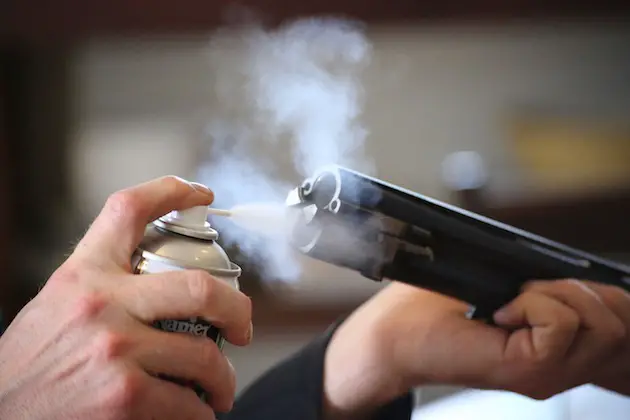
What we have discovered is that WD40 is not the go-to solvent when it comes to gun maintenance.
So, what is? I am sure it comes as no surprise to find out the answer is gun oil and this is why.
-
Lubricant
Gun oil is a fantastic lubricant. A modern firearm is comprised of multiple small parts that all work in harmony to make your gun, accurate, reactive, and safe.
When firing a bullet, these parts all grind together creating great pressure and wear.
The gun oil lubricates these parts, reducing friction and lessening the risk of damage to the gun or yourself.
-
Protectant
Gun oil is specifically designed for the protection of your gun.
Whilst lubricating all the moving and metal parts also protect them from corrosion and rust.
It is a highly refined petroleum product that differs from motor oil in its purity and its inclusion of additives designed specifically to target unwanted and dangerous corrosion and rust.
-
Cleaning (nay!)
However, you should not be using gun oil for cleaning purposes. You need a specialized gun cleaner that is available at all reputable gun stores.
Where gun oil will lubricate and protect the parts of your firearm, the gun cleaner will remove debris, fouling, and residues that WD40 would leave behind.
I think the clear message to take from all this is that gun oil has been designed specifically for the purpose you want it.
So why use anything else?
Other Oils to Clean Your Gun
If you are in an emergency and can’t access the proper oil, then a few household alternatives could be used, such as transmission oil, olive oil, vegetable oil, and of course WD40.
Albeit temporarily and as soon as you have the real gun oil then clean your gun again and clean it properly.
All I would say is always remember you are dealing with a deadly weapon that deserves respect and the correct maintenance so always keep stocked up on gun oil and cleaner.
FAQs
1. Can I use a toothbrush to clean a gun?
Ans. Yes, you can use a toothbrush in an emergency but why should this happen?
Just buy a gun utility brush when you purchase your gun and when it starts to get worn, order another.
2. Can I clean my gun with a brake cleaner?
You can clean your gun with a brake cleaner and it will do a good job of cleaning.
However, the caveat that comes with this is that it will strip your gun of all oil at the same time and so you will need to reapply oil to all required parts every time.
3. Should I Clean a Brand-New Gun Before Firing?
We always encourage gun owners to clean before using their brand-new firearms for two main reasons. One is to familiarize yourself with your new gun.
To operate a firearm safely you should have a complete understanding of how it works.
The second reason is you don’t know what debris may have entered the parts of the gun in storage and transit.

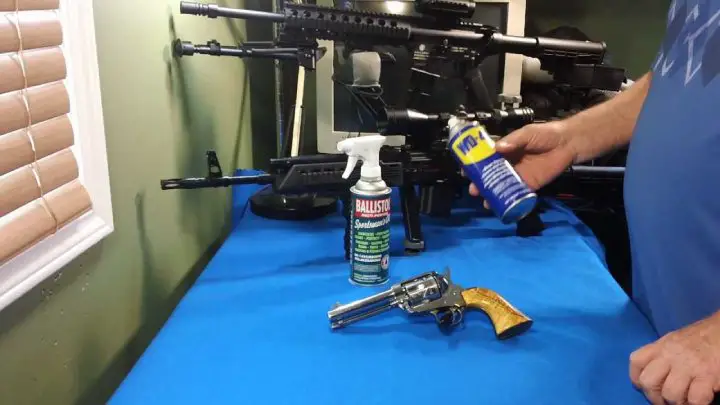



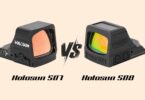
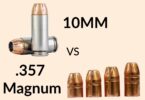


Leave a Comment